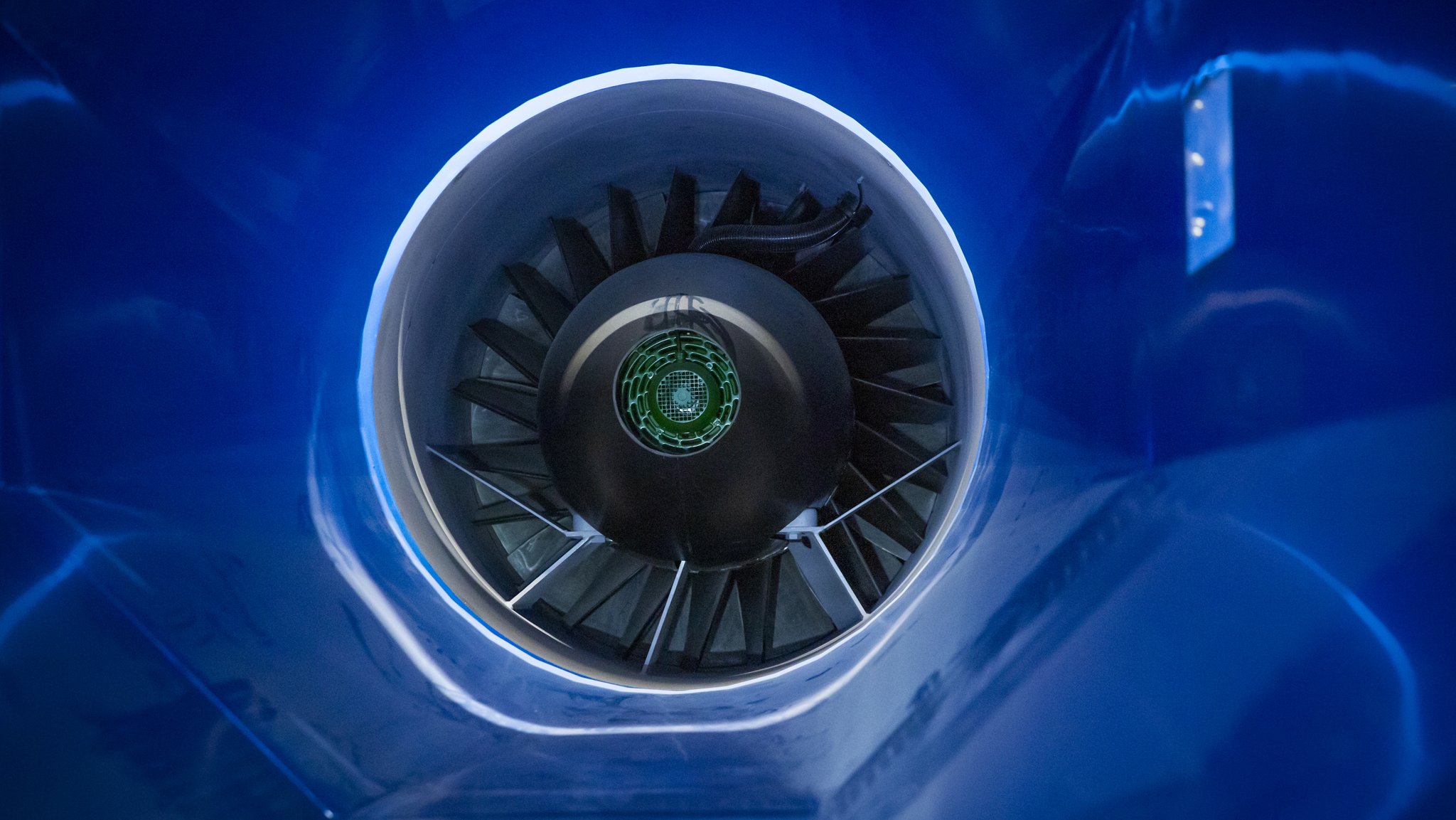
News updates
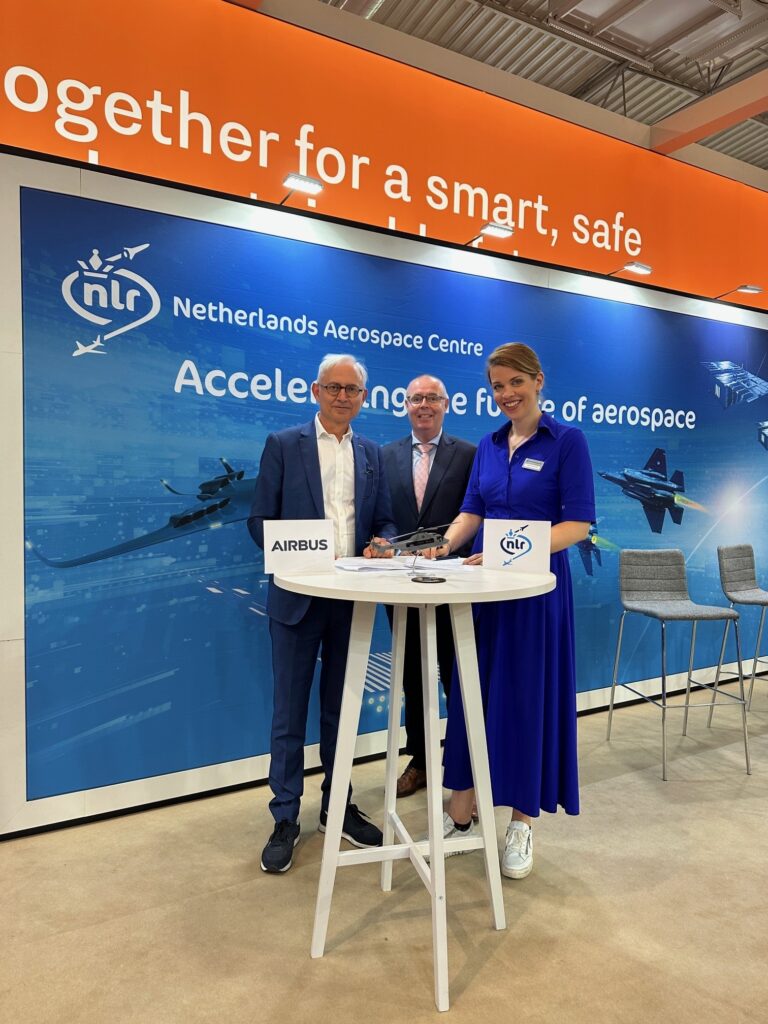
CEO Tineke van der Veen signed a Letter of Intent (LoI) together with Alain Krief, Head of Industrial Participation for Europe at Airbus Helicopters, in the presence of Jan Christiaan Dicke, Commissioner Military Production (CMP).
By signing the LoI, we are strengthening the collaboration of NLR with Airbus Helicopters, particularly in the areas of maintenance and operational availability. This partnership enables the Royal Netherlands Air Force to enhance the efficiency and effectiveness of their helicopters thanks to individual tracking, allowing them to better understand their fleet usage.
Through close cooperation on dedicated topics, NLR can serve as a key link between Airbus and the Royal Netherlands Air Force throughout the entire lifespan of these helicopters, focusing on deployability.
As part of the Ministry of Economic Affairs, the CMP is responsible for industrial participation, which is a requirement for defence contractors to invest in the national defence industry and innovation. Additionally, the government encourages the participation of Dutch companies in international cooperation which will join at a later stage of the Programme.
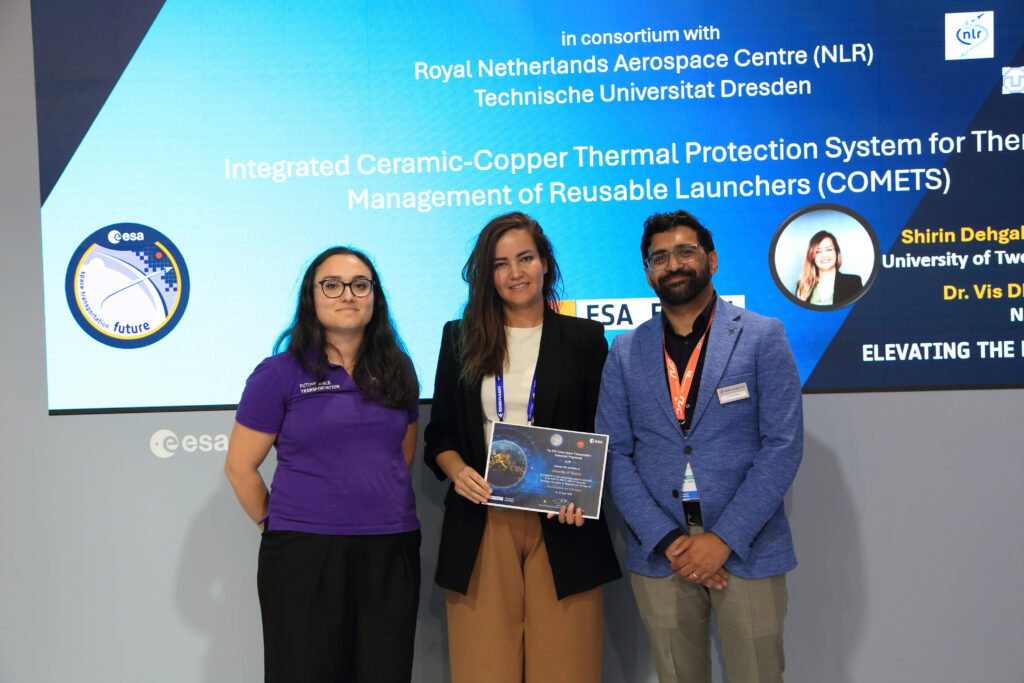
The consortium, comprising the University of Twente (UT), the Technische Universität Dresden (TUD) and Netherlands Aerospace Centre (NLR), has won the ESA award for the COMETS project. This project revolves around the development of a new generation of thermal protection systems (TPS) for spacecraft re-entering the atmosphere. The project focuses on an innovative manufacturing technique that allows us to produce metal and ceramic as a single multi-material component.
The COMETS project combines the expertise of the three institutions in the field of additive manufacturing (AM) and thermal protection technologies. The award recognises the consortium’s innovative approach to developing a multi-material system that combines both metallic and ceramic materials in a single thermal protection system.
The win of this award underscores the strong position of NLR and its partners in the European space sector and confirms their ability to develop groundbreaking technologies for future space applications.
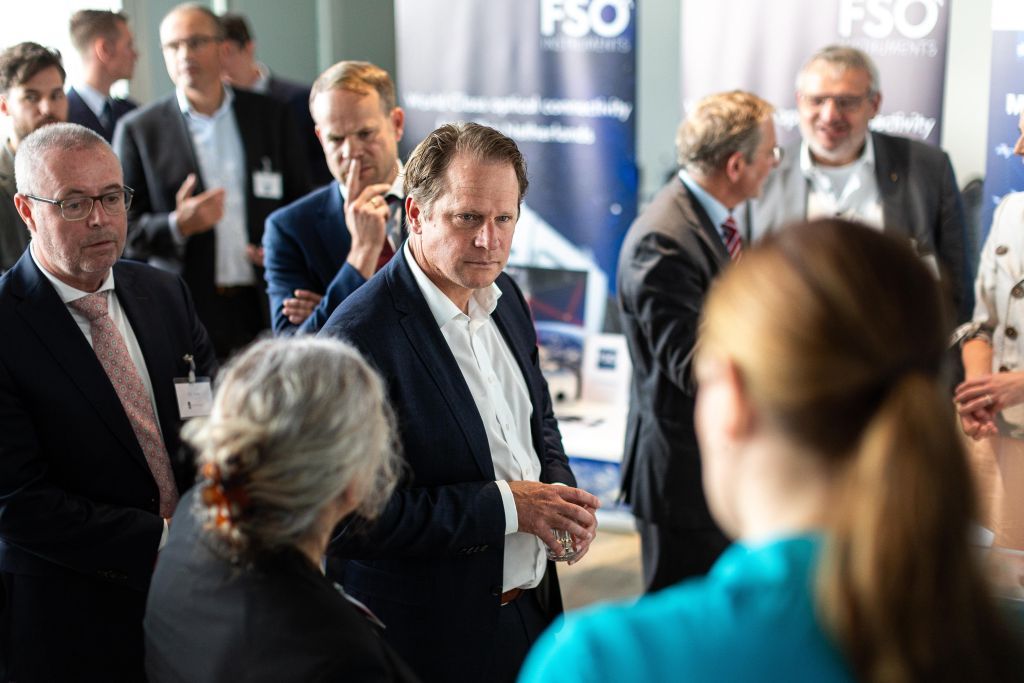
Minister of Defence Ruben Brekelmans and State Secretary of Defence Gijs Tuinman of the Dutch government visited the PAMI consortium to emphasise the significance of space technology.
For the Ministry of Defence, gathering intelligence is of great importance to ensure our national security and to fulfil our national commitments within NATO. Now, the Dutch consortium is developing a satellite and associated technology to support this effort. The PAMI satellite will be capable of collecting essential information during military operations, which will then be transmitted from space securely to users via optical communication.
“NLR encourages innovation in Space through technology for our safety”, states Tineke van der Veen, CEO of NLR. “For this project, we’re developing the electronics that will facilitate the inter-satellite link between PAMI satellites. But also, once the satellite is assembled, first it will be tested at our facilities in Marknesse to determine whether it can withstand the launch”.
The PAMI satellite is currently planned to be launched in 2028, subject to the ongoing development schedule.
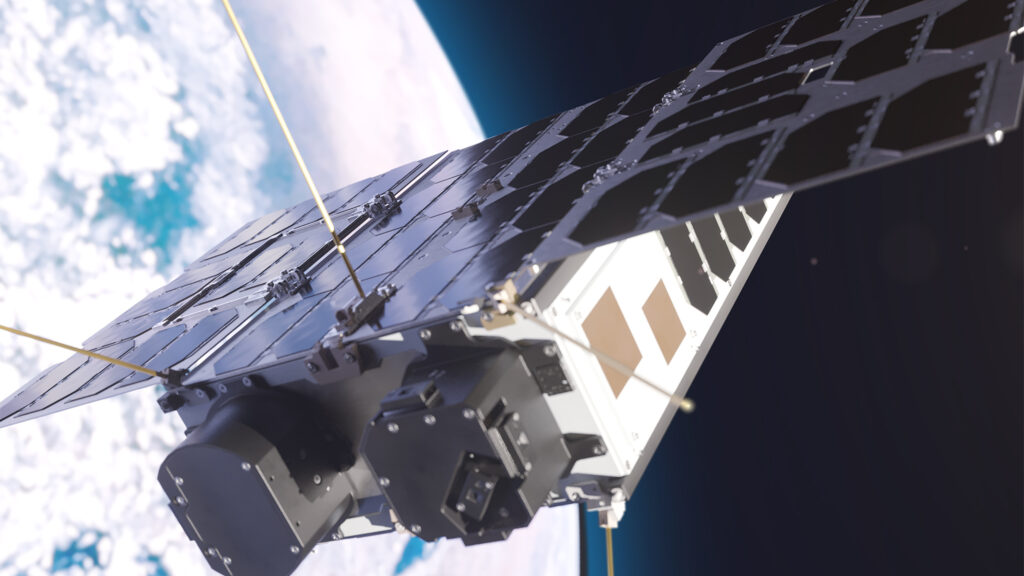
Today, we had the opportunity to highlight our role in the Dutch ecosystem with government and industry by showcasing the MilSpace2 project at ISISPACE Group in Delft, during a visit from European Commissioner Andrius Kubilius. Our presentation highlighted the collaborative efforts and the impact on enabling the industry to deliver necessary military capabilities. It was a great chance to demonstrate our work and its significance in the aerospace sector.
Watch our video on the Milspace2 project here.
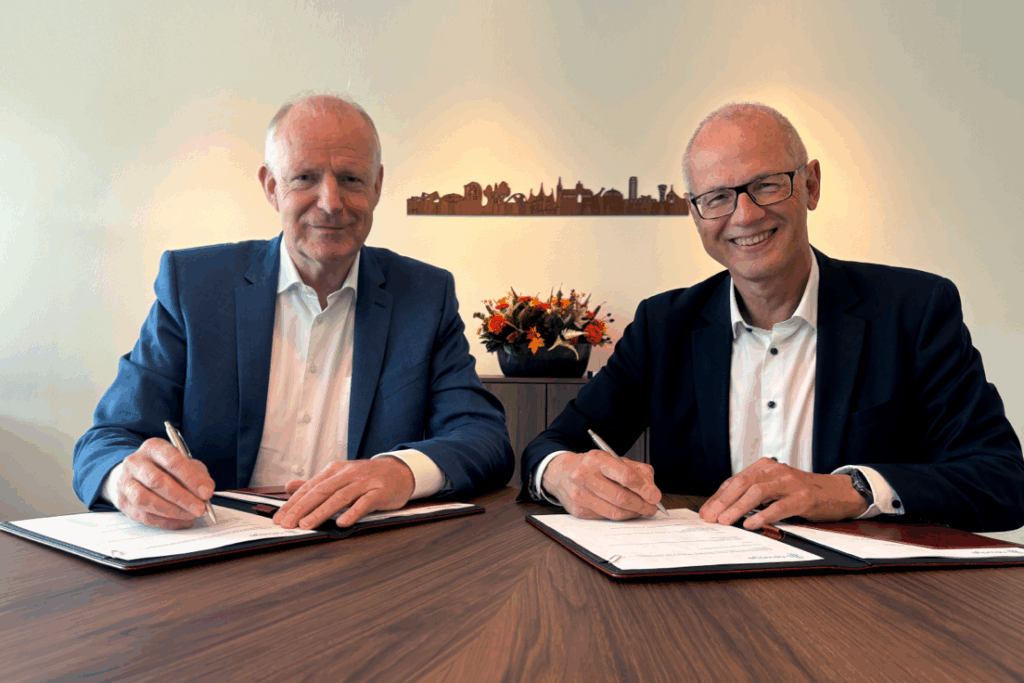
NLR and Neways are joining forces to enhance Aerospace and Defence applications in the Netherlands. This collaboration combines NLR’s innovation capabilities in aerospace with Neways’ expertise in electronic manufacturing to accelerate the development, prototyping, and industrialisation of specialised electronic components that are critical to the next generation of defence systems. Together, we are committed to strengthening the Dutch defence market by:
- Providing comprehensive lifecycle support through value engineering, redesigns, and mid-life updates.
- Developing advanced unmanned systems, including sophisticated Flight Controller technology.
- Driving specialised electronics innovation through the combination of Neways’ embedded motor drives, power electronics, and data systems with NLR’s expertise in aerospace.
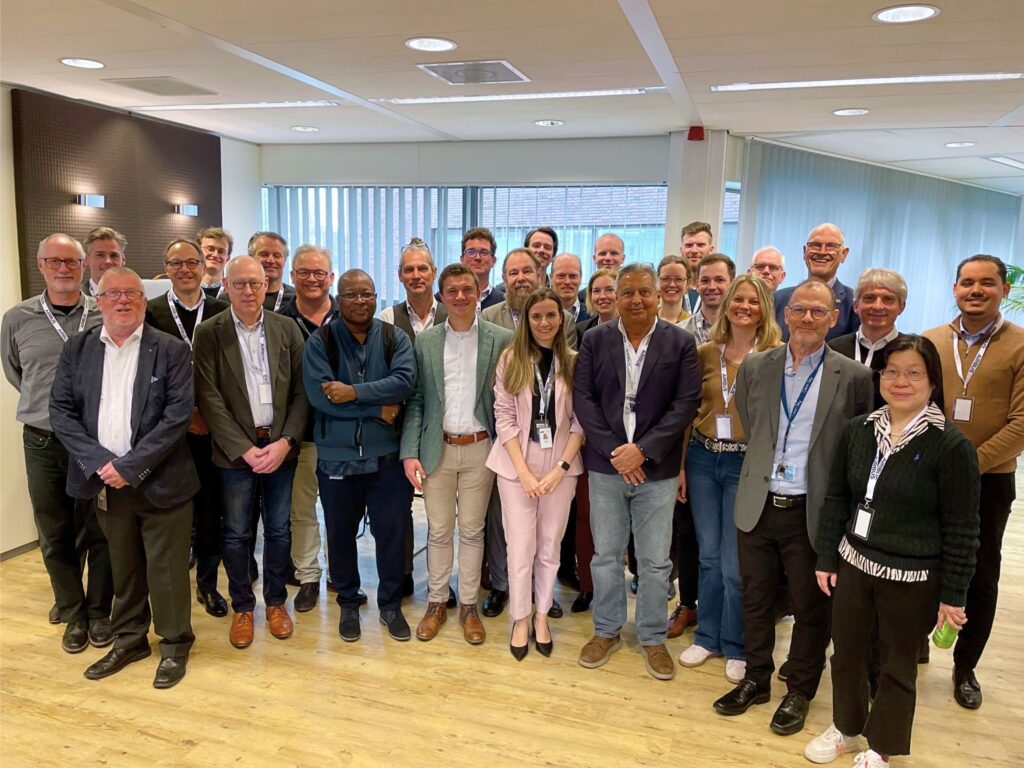
The ICEFlight project has officially taken off and we are looking forward to the results that this strong consortium will deliver in the coming years. ICEFlight aims to accelerate the development of critical cryogenic technologies, with the ambition of enabling hydrogen-powered flights. Together with leading Dutch partners, the consortium is working on specialised cryogenic cooling and electrical distribution systems, while strengthening the knowledge, skills and technologies needed in the Netherlands for the next generation of aircraft. For more information about ICEFlight, please visit: https://luchtvaartintransitie.nl/en/project-item/iceflight/
ICEFlight is the latest project within the Luchtvaart in Transitie programme, supported by Nationaal Groeifonds. This collaboration is led by Airbus Netherlands B.V., with partners including Airbus UpNext, GKN Aerospace, Stirling Cryogenics, TU Delft, University of Twente, Cryoworld B.V. and Futura Composites.
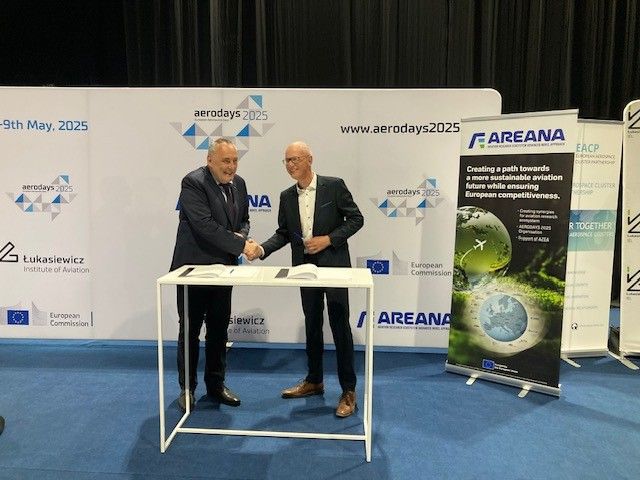
At the Aerodays 2025 conference in Warsaw, INCAS and NLR signed a Memorandum of Agreement (MoA) to explore possibilities for cooperation in areas of mutual interest in aviation. As members of EREA (Association of European Research Establishments in Aviation), INCAS and NLR will further develop a shared vision and policy to advance Research & Innovation in Europe. The primary objective of this MoA is to advance knowledge in the area of new generation aircraft with zero emissions and air transportation automation. The goal is to enhance industry competitiveness and reduce the environmental impact of air transport by decreasing fuel consumption, noise, and emissions, and to reduce delays and increase safety under both standard and non-standard airspace operations operating conditions.
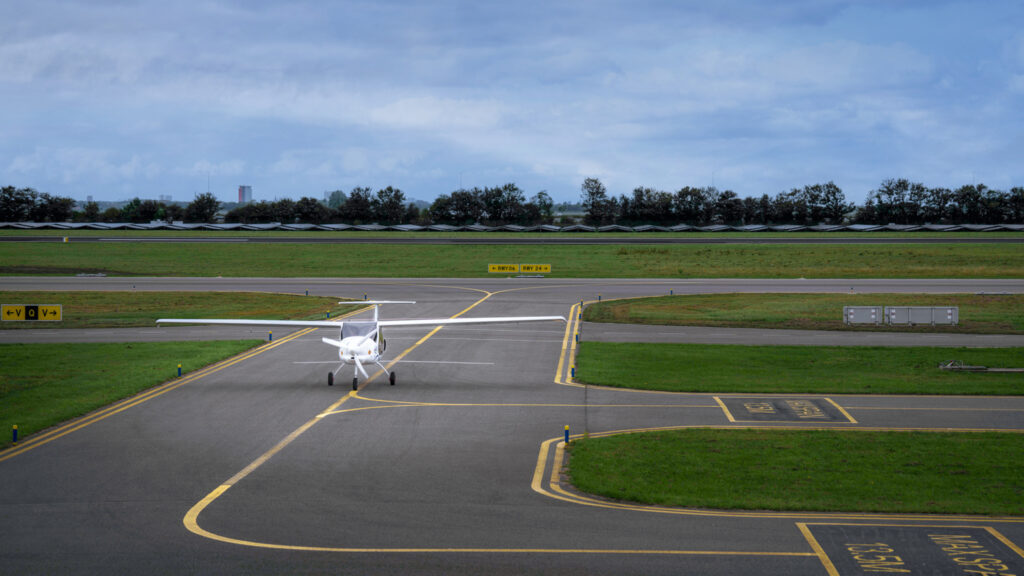
As a knowledge institution for applied research, we have a central position in the valorisation process of converting knowledge into value. Our goal is that the result of our research finds its way into applications in society and economy in order to make an impact there. Do you want to know more about our prominent research? View (and download) the impact report 2024 here on our website (Dutch only).
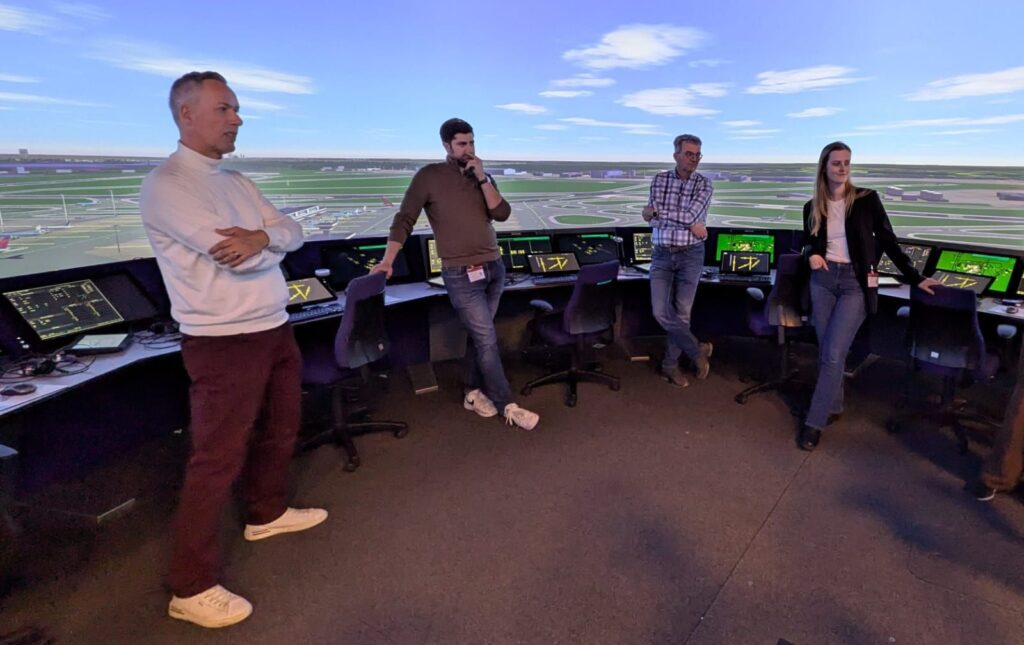
Today, we received a delegation from the Amsterdam City Council, consisting of representatives from Dutch political parties VVD Amsterdam, Volt Amsterdam, DENK Amsterdam, and JA21. We showcased the scientific work being done within their municipality at NLR. Our experts shared their knowledge on issues such as noise hinderance around Schiphol Airport and the optimisation of flight routes. They also got a glimpse of our Virtual Community Noise Simulator (VCNS) and the Air Traffic Control Simulator (NARSIM). The visit provides an opportunity to link our research results and expertise to the practical challenges and needs of the Amsterdam City Council.
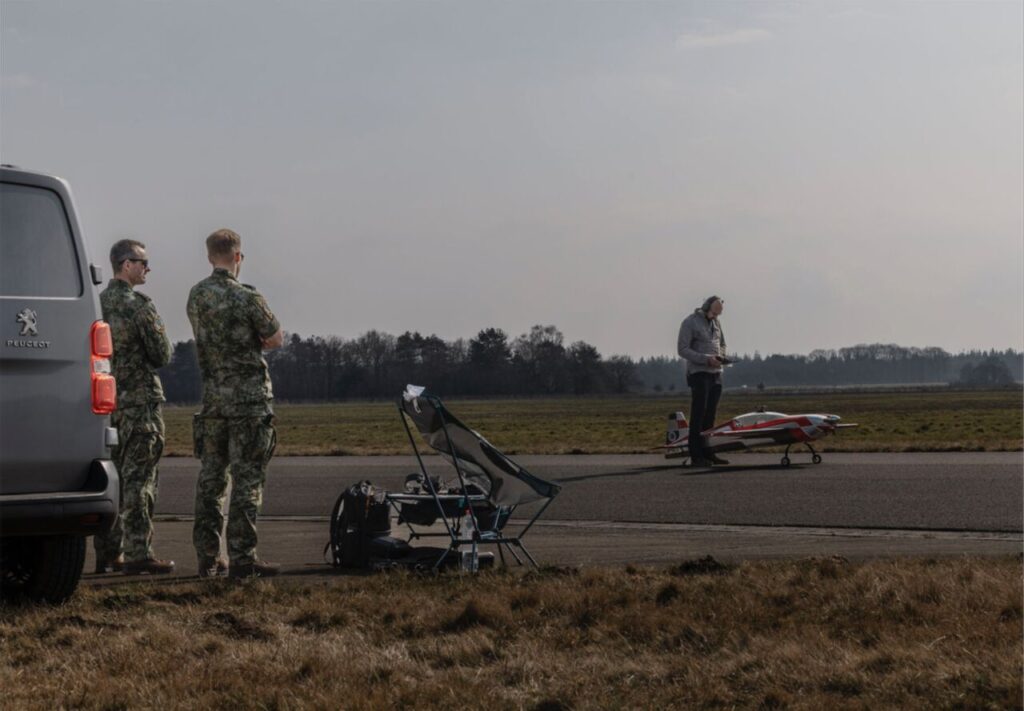
What if you had to build a completely new detection system in just three months? Together with the Royal Netherlands Air Force and TNO, we developed a system to detect low-flying drones and projectiles at record speed. A process that normally takes years was reduced to weeks. And with success! With project CLSK X, we prove that extremely fast innovation is possible through good collaboration with partners, a can-do mentality, and complete freedom to innovate. Read about it in the Dutch Defence Journal (Dutch only).
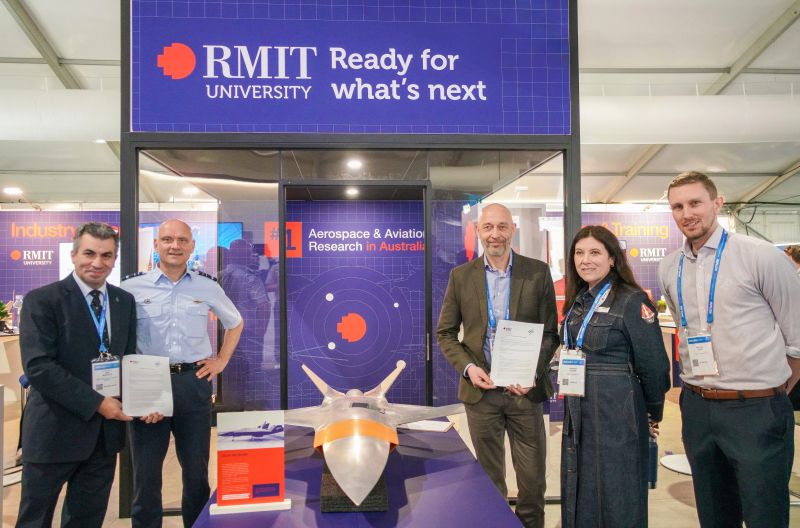
NLR and RMIT University from Australia have recently signed a Memorandum of Understanding (MoU). This MoU formalises the intention to collaborate on the development and research of innovative technologies for aircraft maintenance.
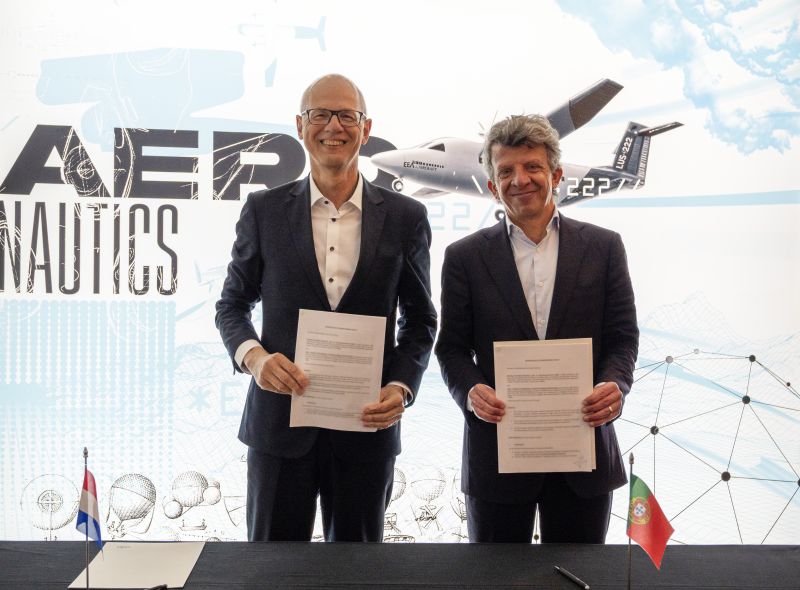
Royal NLR and CEiiA // Centre of Engineering and Product Development, signed a Memorandum of Understanding (MoU).
This partnership is a significant step forward for both our organisations and the impact we can make together when it comes to sustainable European autonomy, Research & Development and Competitiveness. Cooperation is essential in today’s complex environments and global challenges. The signing of the MoU will enable us to tackle these challenges more effectively and create new opportunities for growth and develop innovative solutions serving society.
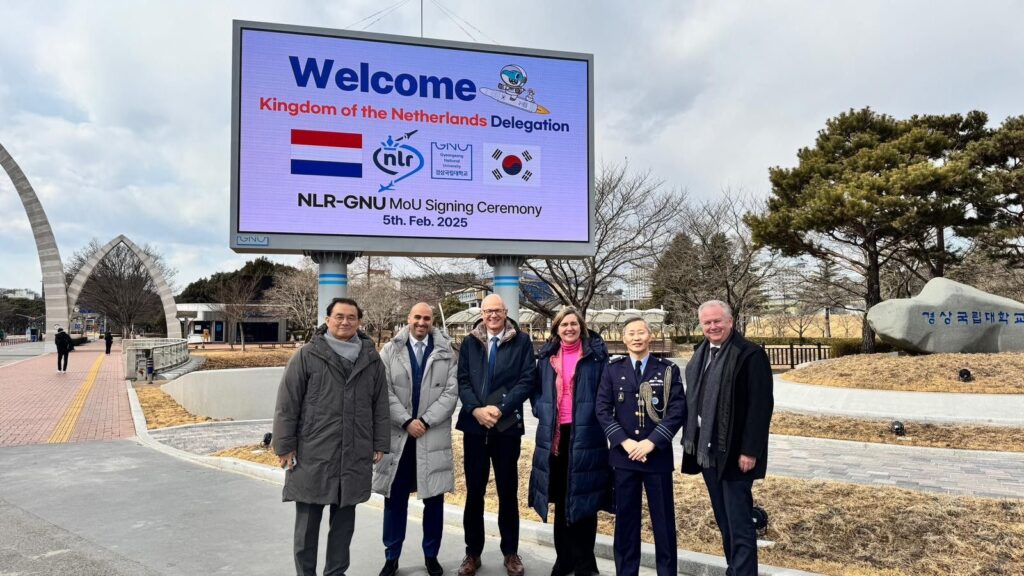
As a global player, Royal NLR operates worldwide, and our presence in South Korea is a key example of our commitment to international collaboration. For 20 years, we have been working together with Korean industry leaders such as Korea Aerospace Industries and LIG Nex1, to drive innovation and progress in the aerospace sector. This partnership was recently reaffirmed during a visit to South Korea by a delegation consisting of NLR CEO Michel Peters Director of Business Development Fouad Gaddur, and DNW – German-Dutch Wind Tunnels Director Joost Hakkaart. Beyond reaffirming these vital relationships, a significant highlight of the recent visit was the signing of a Memorandum of Understanding with Gyeongsang National University (GNU-GADIST). Next to this we had the privilege of engaging with the Korea AeroSpace Administration, gaining valuable insights into their vision and initiatives. We extend our sincere gratitude to Dong June International, our local agent and the Embassy of the Kingdom of the Netherlands in Korea for their invaluable support throughout the visit.
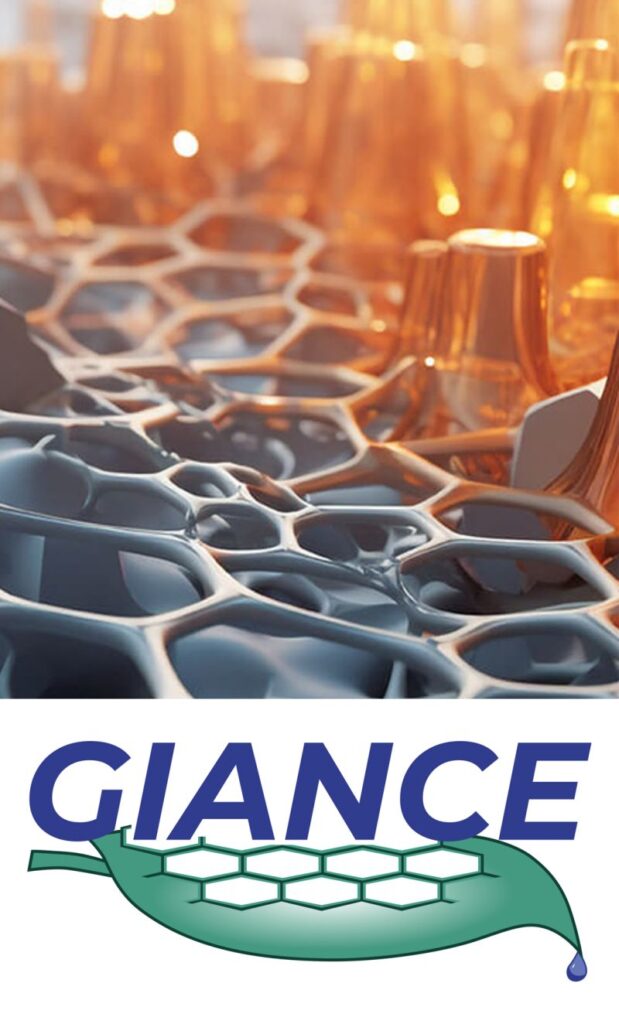
GIANCE project: Innovating for a Sustainable Future
NLR is part of the GIANCE project, working with 23 partners to create eco-friendly, affordable materials for aerospace. The focus? Advanced graphene-based materials that are lightweight, recyclable, and environmentally friendly.
What are we doing:
– Developing a leading edge for a UAV spacecraft from Dawn Aerospace, which needs to withstand extreme temperatures encountered during space missions
– Creating a trailing edge part for Boeing, which demands specific lightning strike protection when manufactured from composite materials.
Our goal? To develop and validate graphene modified high-temperature composite solutions for the leading edge and graphene modified coating that can protect the thermoplastic trailing edge part, replacing the traditional metal mesh.
This project means better, lighter, and more efficient aerospace materials, all while reducing environmental impact. GIANCE’s emphasis on recyclability, reducing weight, and enhancing performance fits perfectly with NLR’s mission to push the aerospace industry forward while minimizing its environmental footprint.
More information about GIANCE? Check out the GIANCE website.
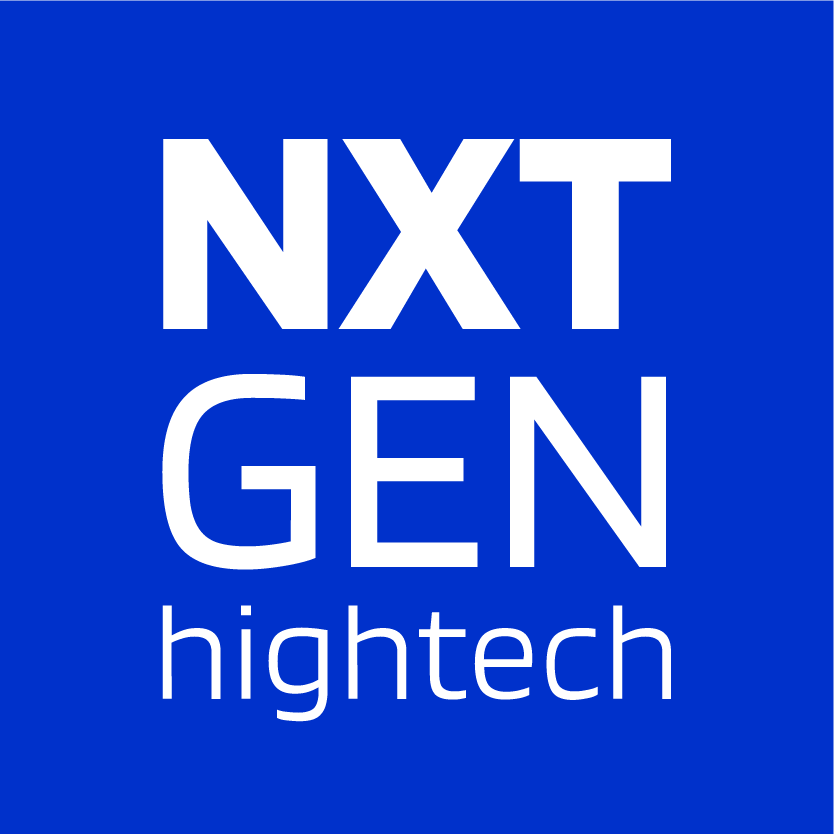
NLR has recently finished the first phase of the Dutch NXTGEN Hightech programmes related to innovative composite production technology (hardware and software) for high-quality applications in aviation and mobility. The overall goal is to contribute to the reduction of CO2 emissions, waste reduction, and efficiency in production processes through automation and digitisation, and help improve the affordability and flexibility of composite production and drastically shorten the time-to-market for new product series.
✈️ Digital composite automation for sustainable aviation
The projects aim to make the aviation industry more sustainable by developing a digital production platform for flexible production composite production, essential for lightweight aircraft components.
🚘 Digital micro-factory for lightweight e-mobility
This project focuses on developing a digital production platform for the flexible production and recycling of lightweight thermoplastic composites, aimed at e-mobility and automotive applications
Watch the videos to learn more about the research projects:
Visit the NLR booth #6C77 at the JEC World 4-6 March in Paris.
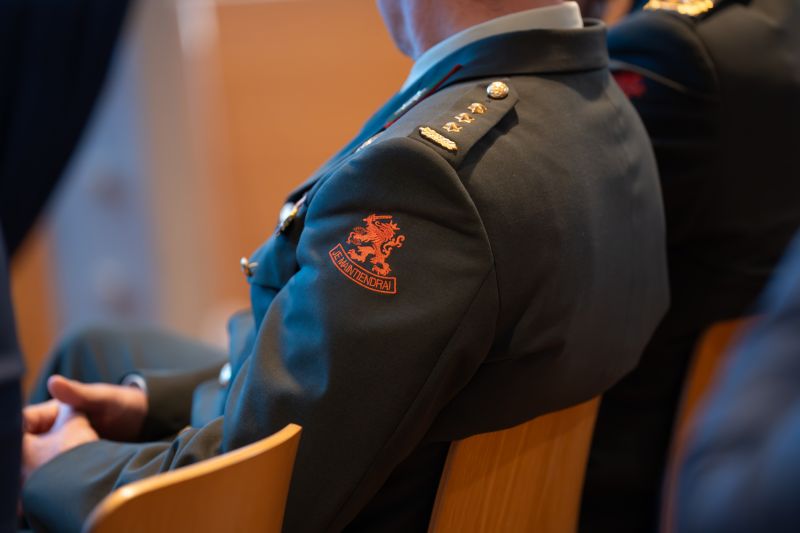
In mid-February, NLR organized a meeting with its partners titled “Preparing now for the industry of tomorrow”. During this afternoon, the themes of strategic autonomy, production scaling up, and ecosystem for short-cyclic innovation took center stage. Representatives from the Ministry of Defense provided insight into the Action Plan for Production Security of Unmanned Systems (APOS). The panel discussions with representatives from the Ministry of Economic Affairs, Ministry of Infrastructure and Water Management, Defense, NLR, TNO, and industry companies such as Avalor AI, VDL Groep Konings, Orange Aerospace, GKN Fokker, and PAL-V, focused on the challenges of accelerating innovation and enabling production scaling up. There is a strong ambition and great opportunities for a stronger ecosystem of government-industry-knowledge institutions. We look back on a successful meeting, thanks in part to and with great appreciation for all the speakers and participants!
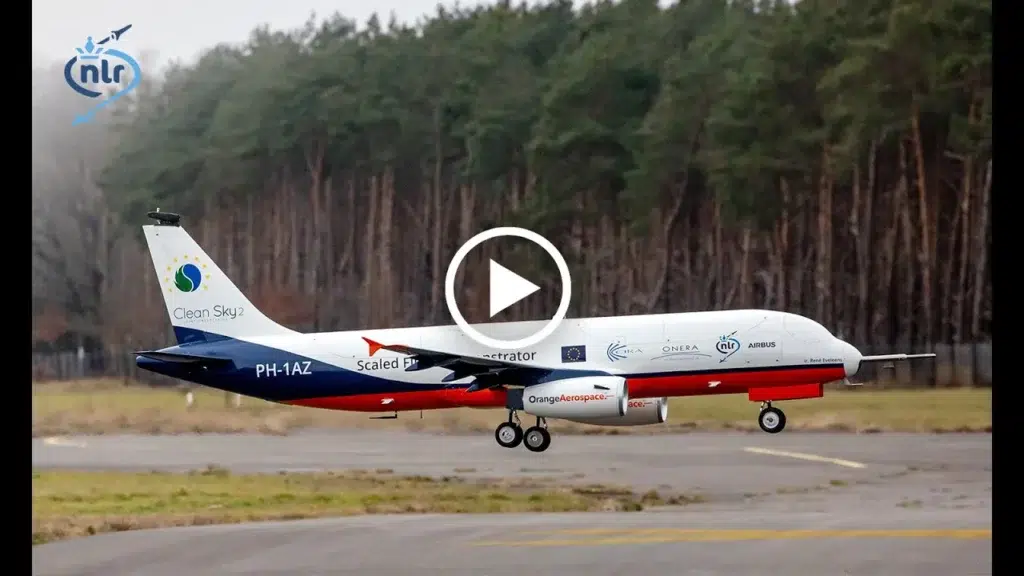
Please check out our latest video about Distributed Electric Propulsion technology, that was demonstrated and tested in a measurement campaign with numerous flights of a scaled aircraft in 2024 ???? ✈.
The flight dynamics and control of the aircraft allow steering and controlling the aircraft with differential thrust. It enables the aircraft to steer during flight with different thrust of the left and right engines relative to each other. This technology that offers several advantages such as reduced drag (e.g. less usage of the control surfaces), can contribute to innovations towards climate neutral aviation.
The project contributes to the objective of the Clean Sky 2 programme of the European Commission in which Airbus, ONERA – The French Aerospace Lab, CIRA – Italian Aerospace Research Centre, TU Delft | Aerospace Engineering, Orange Aerospace.- and NLR collaborate.
Watch the video here